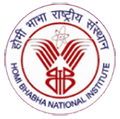Contact Information
-
location_on
2nd Floor, BARC Training School Complex, Anushaktinagar, Mumbai, Maharashtra 400094, India
-
call
(022) 25597623
-
mail_outline
(022) 25597623
-
email
- web_asset
Approved By: UGC NAAC
About Homi Bhabha National Institute
The Homi Bhabha National Institute (Hbni) is a prestigious Indian deemed university, which is composed of ten Constituent Institutions (CIs) : 4 premier centres and 6 premier autonomous institutes, each with a well established history of excellence, under a single research-driven framework. It is named after the late Indian physicist Homi J. Bhabha. It is not included as a part of HBNI as it is a deemed university by itself. The HRD Ministry of the government of India declared Homi Bhabha National Institute (HBNI) a deemed to be University along with ten Constituent Institutions (CIs) via MHRD (Ministry of Human Resources and Development) vide notification No. F.9-5/2004-U.3 dated June 3, 2005. Prime minister of India, Dr. Manmohan Singh, announced the approval of the government of India for setting up of HBNI on June 4, 2005. HBNI and its ten CI's (excluding TIFR, Mumbai, which is a Deemed University on its own) are among the very few institutions of excellence chosen by the Parliament of India to be kept out of the purview of reservations in the Central Educational Institutions (Reservation in Admission) Bill, 2006, which increases the reserved seats to 49.5 per cent in prestigious educational institutes like Indian Institutes of Technology (IITs), Indian Institutes of Management (IIMs), Indian Institute of Science (IISc).
Constituent Institutions
1. R&D Centres - The research centres the focus is more sharply on technology and product development.
These are:
- BARC - Bhabha Atomic Research Centre, Mumbai. BARC is India's primary nuclear research facility based in Mumbai. It has a number of nuclear reactors, all of which are used for India's nuclear power and research programme.
- IGCAR - Indira Gandhi Centre for Atomic Research, Kalpakkam. The Centre is primarily a research facility besides being a nuclear power plant aiding in meeting a percentage of the electricity demands of the country.
- RRCAT - Raja Ramanna Centre for Advanced Technology, Indore. It is engaged in R&D in non-nuclear front-line research areas of Lasers, Particle Accelerators and related technologies.
- VECC - Variable Energy Cyclotron Centre, Kolkata. It performs research in basic and applied nuclear sciences. It provides proton, deuteron, alpha particle and heavy ion beams of various energies to other institutions.
2. Grant-in-aid Institutions - The grant-in-aid institutions concentrate relatively more on basic research.
These are:
- SINP - Saha Institute of Nuclear Physics, Kolkata. It is an institute for conducting research for doctoral degrees and providing facilities for teaching and research in physical and biological sciences.
- IPR - Institute of Plasma Research, Gandhinagar. The institute is involved in research in various aspects of plasma science including basic plasma physics, research on magnetically confined hot plasmas and plasma technologies for industrial applications.
- IOP - Institute of Physics, Bhubaneswar. The institute conducts research both in theoretical and experimental physics.
- HRI - Harish-Chandra Research Institute, Allahabad. HRI specializes in research on mathematics and theoretical physics.
- IMSc - Institute of Mathematical Science, Chennai. IMSc is a national institute for fundamental research in frontier disciplines of the mathematical and physical sciences: theoretical computer science, mathematics, and theoretical physics.
- TIFR - Tata Institute of Fundamental Research, Mumbai.
- TMC - Tata Memorial Centre, Mumbai.
Faculty
- Chemical Sciences
- Engineering Sciences
- Life Sciences
- Mathematical Sciences
- Physical Sciences
- Strategic Studies
- Health Sciences
Facilities
Graduate Fellowship Scheme - A new scheme called DAE Graduate Fellowship Scheme for Indian Institutes of Technology (IITs) with the twin objectives of human resource development and collaborative research through the medium of M.Tech. students was launched by the BRNS in the year 2002. The scheme envisages selection of M. Tech. students admitted to one of the 6 select IITs for working on a project of interest to DAE (Department of Atomic Energy) under the guidance of faculty from IITs and DAE. Such students receive enhanced financial support from the DAE while pursuing M. Tech. and on completion of which are ensured employment within the DAE system.
Research - It has strengthened the research programmes at universities by providing grants for well defined projects. All grants are channelised through the Board of Research in Nuclear Sciences (BRNS), which has the distinction of being the first agency in the country for funding extra-mural research. In the recent years, funding through BRNS has been significantly stepped up and the Department is planning to further expand its activities.
- Yet another visionary and uniquely DAE centred initiative is the institutional arrangement whereby advanced and major research facilities such as research reactors and accelerators of the Department are made available to the academic institutions. This is the strongest link, which the University Grants Commission and the DAE have established and nurtured for over a decade. There is no parallel for such an arrangement in the country. This successful arrangement hitherto called the Inter-University Consortium for DAE facilities (IUC-DAEF) is being refashioned and expanded under a new MoU signed on December 10, 2003 and has been renamed as UGC-DAE Consortium for Scientific Research.
- Research Centres and grant-in-aid institutions of Department of Atomic Energy have also established and nurtured direct linkages with several universities, for example, BARC has an agreement with the Pune University under which 12 students are admitted every year to pursue doctoral programme under the joint guidance of the faculty from Pune University and scientists from BARC.
Training Courses - BARC also conducts year-long Training Courses for equipping science post-graduates to work as medical physicists and radiological safety officers, doctors to practice nuclear medicine and science graduates to work as technologists in nuclear medicine centres.
Information compiled from: Homi Bhabha National Institute Website

